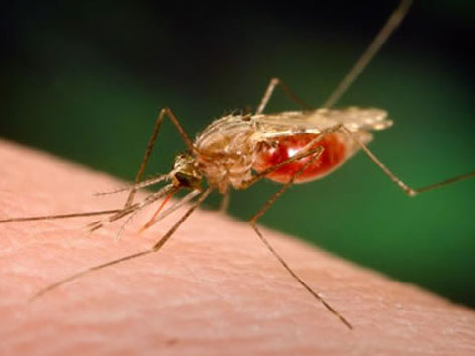
Since 2009, the world has watched the decline of Greece under the weight of its overwhelming debt. Since then, the country has seen fallout such as dysfunctional government, a deluge of illegal immigrants, and sharp budget cuts to its health care system. In addition, the progress Greece has made in its public health policies over the past several decades has suffered severe setbacks, an outcome that has led to another disturbing sign of decline: the return of dreaded infectious diseases such as malaria.
According to the Wall St. Journal, Greece’s fragile economic status has led to shortages of many common medical supplies and medications, including cancer drugs and syringes. With doctors and nurses also not receiving reimbursements for services, leading to less consistent monitoring of contagious illness, Greece is seeing outbreaks of infectious diseases such as malaria, respiratory-tract infections, skin conditions, tuberculosis, and HIV. Since up to a third of Greek citizens no longer can afford the medications and tests prescribed by doctors, infectious disease is more likely to go unchecked. In essence, the health care system is buckling under the weight of the country’s debt and government dysfunction.
Epidemiologists believe that the outbreak of malaria likely began when an infected immigrant transmitted the disease to others. Greece’s Center for Disease Control, however, did not respond quickly to the first cases, and only after the European Union health authorities urged the Greek government to do so. Recent immigrants to parts of Greece have come from Afghanistan, Pakistan, and Bangladesh, all areas in which malaria is prevalent.
The burden of crushing debt on nations who choose to ignore its dangers, until it is too late, produces a domino effect when the ultimate crisis takes place. The need for immediate and sharp cuts must then be made, leading to an inability of the system to absorb them.
For Greece, the urgent need to meet the demand of its debtors caused the slashing of local government budgets by 60% over the next three years, as it also weighed down those local governments with more health care responsibilities. Provincial governments, which performed aerial spraying of insecticide to kill mosquito larvae, were abolished in 2011, without replacements. Overwhelmed by cutbacks, few of the local governments chose spraying, to prevent malaria, as a priority. With the disease now spread throughout the country, officials in Greece say it will be several years before continued spraying can rid the country of malaria.
Doctors Without Borders, a non-profit organization that usually services developing countries, is evaluating whether it will set up a mission in Athens, where thousands of immigrants live in close, unsanitary conditions without access to health care. Greek program director for the organization, Dr. Apostolos Veizis, expressed frustration with the situation.
“You know that the mosquito that can carry the parasite is present in this country…and you know that there are immigrants arriving from malarial countries,” Veizis said. “What do you have to do to ring the alarm bell and raise the level of surveillance?”

COMMENTS
Please let us know if you're having issues with commenting.